-
UAB AMWA Chapter Kicks Off the Academic Year
The UAB Chapter of the American Medical Women’s Association (AMWA) kicked off in August with an inaugural business meeting on August 28. Now in its third year of operations, AMWA will offer a series of lunch lectures and panel discussions every other month, beginning on Tuesday, October 9.
AMWA membership is open to women faculty, students, and trainees at UAB School of Medicine. The intention of AMWA is to provide resources, support, and networking opportunities to women pursuing careers in academic medicine, although men are welcome to join as well.
This academic year will also mark the second time that the UAB AMWA chapter has hosted the regional conference, which includes several southeastern states as well as the Caribbean. Last year’s conference boasted nearly 100 enrollees; the upcoming conference, scheduled for February 15-16 2019, will have the capacity to include more.
AMWA is still seeking several key officers for the academic year. Those with questions should email lauracoulter@uabmc.edu.
-
UAB Chapter of AMWA Holds Second Annual Regional Conference
When twelve women physicians met in Chicago in 1915 to form the Medical Women’s National Association, which was the forerunner to the American Medical Women’s Association, it’s unlikely that they saw their effort taking hold in academic medical centers throughout the entire nation and serving as a powerful voice for change. A century later, the UAB Chapter of the American Medical Women’s Association (AMWA) carries on the legacy of those crucial first voices in advocating for women in medicine and science, offering mentoring and networking, and providing resources for students, trainees, and faculty to use in their professional development.
 For the second year in a row, UAB School of Medicine’s AMWA chapter hosted the Region 5 conference on February 15 and 16. Drawing together women physicians from throughout the Southern United States and the Caribbean, this event brought participants from as far afield as Puerto Rico to workshop, network, and learn.
For the second year in a row, UAB School of Medicine’s AMWA chapter hosted the Region 5 conference on February 15 and 16. Drawing together women physicians from throughout the Southern United States and the Caribbean, this event brought participants from as far afield as Puerto Rico to workshop, network, and learn. The Friday, February 15 sessions were targeted at women faculty, and took place in Margaret Cameron Spain auditorium. The conference was introduced by Lauren Walter, M.D., who has served as the UAB AMWA Chapter President since its revival in 2015. Speakers discussed the importance of self-care for physicians, the path to promotion and tenure, and the way to become effective leaders.
-
UAB Medicine Celebrates 3rd Consecutive Year as Leader in LGBTQ Healthcare Equity
2018 marks the third consecutive year that UAB Medicine has been named a Leader in LGBTQ Healthcare Equality by the Healthcare Equity Index.
The Healthcare Equity Index (HEI) is a unique annual survey admnistered by the Human Rights Campaign that promotes and encourages inclusive crare for LGBTQ people in healthcare facilities across the United States. A record 626 healthcare facilities actively participated in the 2018 HEI survey. In addition, the HEI includes ratings from 901 hospitals that the Human Rights Campaign Foundation independently researched on behalf of LGBTQ patients to ascertain their existing policies.
In order to be named a "Leader in LGBTQ Healthcare Equity," a facility needs to receive a score of 100 points. Facilities receive points for meeting specific requirements and by having a certain number of best practices and policies in place.

The four core objectives of the HEI are to:
-
Ensure foundational protection for patients, visitors, and staff in patient and staff policies, and provide cultural competency training on LGBTQ inclusion
-
Demonstrate progress toward inclusion on LGBTQ patient care and support
-
Cultivate an inclusive workforce by providing LGBTQ-inclusive employee support and benefits
-
Demonstrate public commitment to the LGBTQ community
UAB Medicine will celebrate this achievement with a reception on May 30, 2018, from 4:00 - 5:00 pm in the North Pavilion Atrium first floor.
-
-
UAB Medicine Celebrates Second Annual Diversity Fair
On the afternoon of January 26, the second floor atrium of North Pavilion began to fill steadily: first with representatives of each department of the School of Medicine, and then, as brightly-colored and eye-catching displays were constructed, with guests. The School of Medicine Office for Diversity and Inclusion celebrated its second annual Diversity Fair from 4:00 – 6:00 pm, with food, drink, and entertainment.
2017’s inaugural Fair enjoyed more than 500 attendees; the 2018 Fair welcomed roughly 700 guests from across UAB Medicine. Each School of Medicine department was challenged to bring food and
 décor that represented some aspect of the faculty and staff of their department. Some chose to bring food representing as much of the national and international composition of their employees as possible; others focused on a single region or nation.
décor that represented some aspect of the faculty and staff of their department. Some chose to bring food representing as much of the national and international composition of their employees as possible; others focused on a single region or nation.Departments competed for the honor of best table, and were judged on their decorations, presentation, and the taste of the food they offered. Food selections from as far afield as India, Japan, Germany, England, China, and a wealth of other world locations filled the tables. A panel of six judges evaluated the tables. Restaurant gift cards will be awarded to the top ranking departments.
-
UAB School of Medicine Celebrates Successful Summer Training
In the United States, students of color, particularly those from economically disadvantaged backgrounds, are less likely to be given the educational resources they need to pursue a career in the health professions.
A parallel, and related, issue confronting health care is that patients of color are less likely to be given equitable treatment.
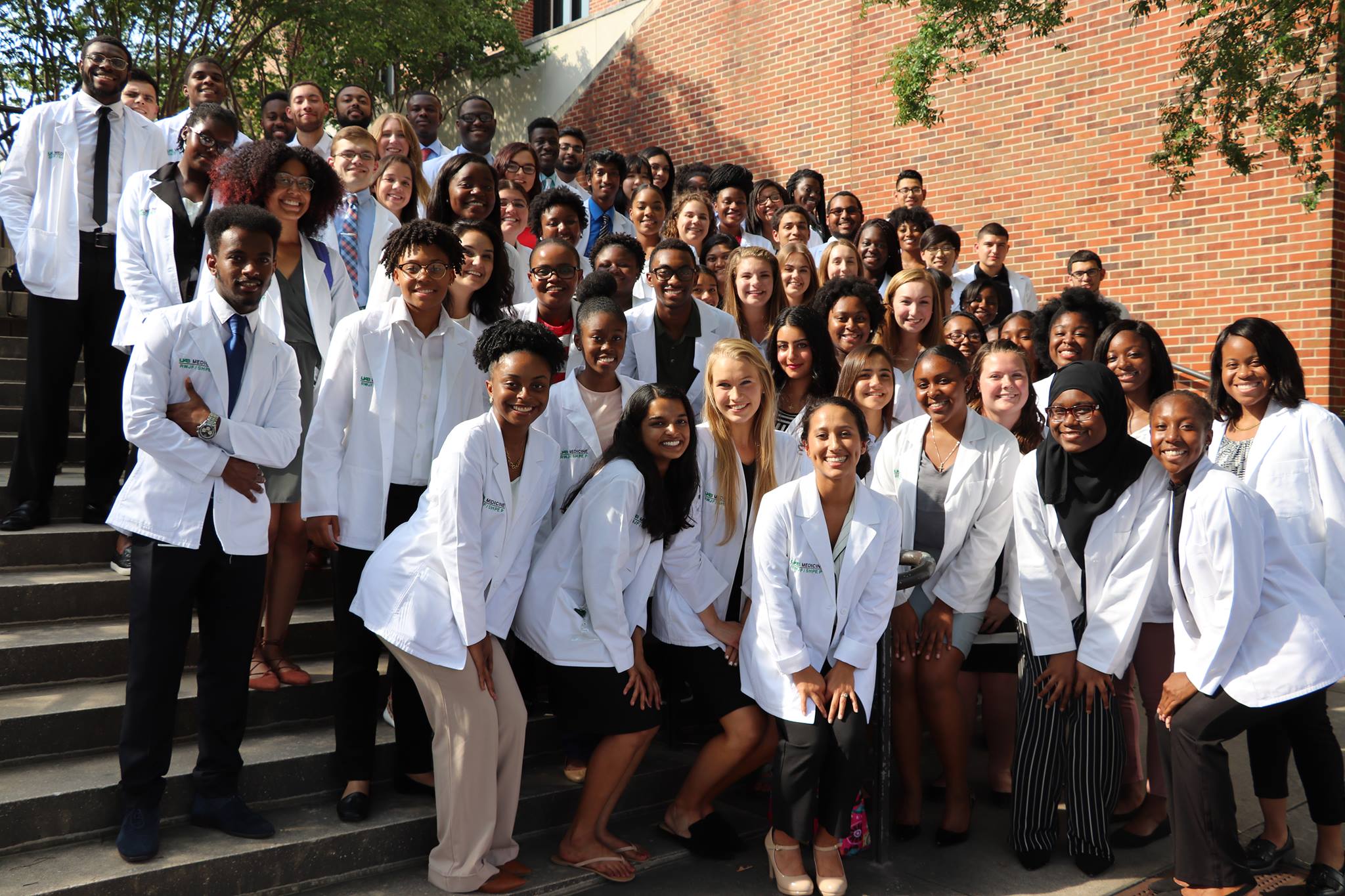
These two problems are connected, in that patients are more likely to visit health care providers who look like them, and health care professionals from underrepresented populations are more likely to engage with the communities in which they grew up. One way in which UAB School of Medicine is attempting to rectify the shortage of physicians and other healthcare providers who are members of underrepresented populations is through summer training programs.
-
UAB School of Medicine Special Topics Forum
 The UAB School of Medicine Undergraduate Medical Education (UME) team is sponsoring a special topic forum—Diversity in Healthcare—during the month of October.
The UAB School of Medicine Undergraduate Medical Education (UME) team is sponsoring a special topic forum—Diversity in Healthcare—during the month of October.The special topics program committee, which consists of Ms. Erica Brown, Dr. Steven Hairston, and Dr. Leisha Hultgren, developed this forum with the vision of having a multi-day event where students are exposed to the who, what, when, and why’s of...
-
UAB SNMA Earns Distinction at National Conference
The annual Student National Medical Association (SNMA) Conference was held this year in San Francisco from March 28 – April 1. For more than half a century, this conference has served as the largest nationwide gathering of under-represented minority medical students and health professionals. The 2018 conference was entitled, “Embracing Our Diversity: Filling the Gaps and Building the Future,” and included five attendees from the UAB chapter of the SNMA at UAB School of Medicine. Their notable achievements include:
• Co-recipient of the 2017-2018 service grant award, along with Vanderbilt University
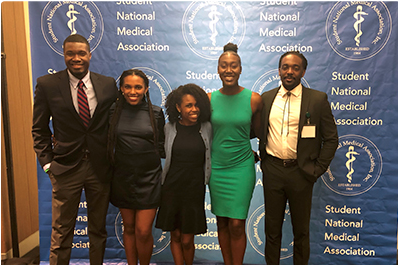
• 3rd place award in the Poster Session
• Alana C. Nichols awarded 2017-2018 SNMA Member of the Year
• Election of Alicia Williams as Region IV liaison
• Induction of local physician Dr. Christopher Carter to SNMA’s Hall of Heroes -
Unconscious Bias Training
 Throughout April, a time also recognized as diversity month, the Office for Diversity & Inclusion will be facilitating unconscious bias training for leadership and supervisors.
Throughout April, a time also recognized as diversity month, the Office for Diversity & Inclusion will be facilitating unconscious bias training for leadership and supervisors.Senior Associate Dean for Diversity & Inclusion, Dr. Mona Fouad, explains, “By starting our training sessions with UAB managers, we aim to set the School of Medicine on a path toward inclusion for all—starting at the top.”
Hosted by Dr. Brian Gittens, this 90-minute virtual program will introduce team members to concepts and approaches for navigating unconscious bias.
-
Unlocking Innovative Solutions for Local and Global Health: Join Dr. Alan Tita at Heersink ODI's 2023 Diversity Grand Rounds
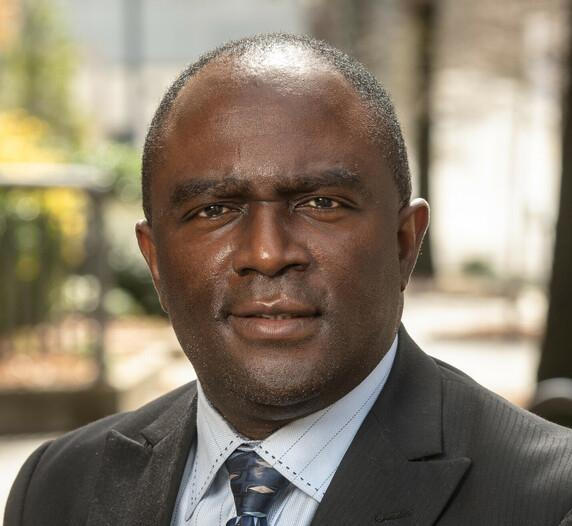 The Heersink School of Medicine Office for Diversity and Inclusion (Heersink ODI) is excited to announce their upcoming virtual Diversity Grand Rounds, featuring Alan T. N. Tita, M.D., Ph.D, UAB Mary Heersink Endowed Chair of Global Health, Director of the Mary Heersink Institute of Global Health, and the Heersink School of Medicine Associate Dean for Global Health.
The Heersink School of Medicine Office for Diversity and Inclusion (Heersink ODI) is excited to announce their upcoming virtual Diversity Grand Rounds, featuring Alan T. N. Tita, M.D., Ph.D, UAB Mary Heersink Endowed Chair of Global Health, Director of the Mary Heersink Institute of Global Health, and the Heersink School of Medicine Associate Dean for Global Health. -
What is Kwanzaa, and how do you celebrate it? UAB student Bria Gamble illustrates the rich history of this holiday
Kwanzaa is a cultural holiday that celebrates African American heritage and culture. It is observed from December 26th to January 1st, and each day of the holiday is dedicated to one of the seven principles of Kwanzaa: unity, self-determination, collective work and responsibility, cooperative economics, purpose, creativity, and faith. These principles are meant to promote and reinforce African culture and community values among African Americans. Kwanzaa was created in 1966 by Maulana Karenga, an African American professor of Africana Studies, to bring African Americans together and celebrate their heritage and culture.
To encourage acceptance and appreciation, the Heersink School of Medicine Office for Diversity and Inclusion (Heersink ODI) spoke to first-year medical student Bria Gamble about how she and her family celebrate Kwanzaa each year.

Gamble sets the scene, “There are seven days of Kwanzaa, and each day is for a certain principal. So, based on whatever the principle is, we'll pick a way to discuss it. And each day, we light one of the candles for each principal. So, by the end of Kwanzaa, you have all seven candles lit. Imagine a table or presentation like in the photo above, it would have candles on it and maybe some different books or other family memorabilia or other things that you feel honor your family and represent the principles of Kwanzaa. When we were younger, my dad would give us a small gift that fits with learning about Black history.”
How this way of celebrating came about:
The Gamble family’s way of celebrating at this time of year started with Gamble’s father, Dr. Brandon Gamble. Gamble explains, “My dad has a lot of different things that he's picked up over the years, and he previously worked with the person [Maulana Karenga] who founded the celebration. So that’s how we started doing it, ever since I was a kid. My dad would lead the celebration for our immediate family, and my maternal grandmother also shared ideas for celebrating.”
Highlighting each principle in creative ways:
Gamble highlights how celebrating Kwanzaa looks different every year, “For example, one of the principles is creativity. So, on that day, we usually do something to talk about it, to discuss it. People can take that time to show their creativity through art, dance, or even—like my sister—write music. In my grandfather’s case, he does water coloring.”
“Everybody can have different days that they choose to present. One year I did a public health spotlight discussing the importance of sunscreen care in the Black community. And each person will have something to say or add if they want to share it. I think it was an excellent way for them to learn something new that they might not know. “
Wider celebrations:
“Some years, especially in those before COVID, we would have an event at a church to celebrate the history of the holiday and the community of Black people. We would discuss all the things [themes] that we've been through and have a summary of all seven principles at one time. These events brought in people who wanted to learn more about Kwanzaa or might not have a traditional way of celebrating it at home.”

A stand-out Kwanzaa memory:
Gamble remembered joyfully, “My dad taught us a song that you can sing that helps you remember all the principles. I feel like that one's sweet because he gets excited. I remember the happiness; his joy was contagious, just like in the photo above.”
Gamble, whose middle name is Imani—one of the 7 days of Kwanzaa–was kind enough to share that song with us:
Kwanzaa Song
Song Leader— I said Umoja means Unity
All - Umoja means Unity
Song Leader - Kugichagulia, means self-determination
All - Kugichagulia, means self-determination
Song Leader - I said, Ujima , means collective work and responsibility.
All - Ujima , means collective work and responsibility.
Song Leader - Ujimaa, means cooperative economics.
All - Ujimaa, means cooperative economics.
Song Leader - I said Nia, means purpose.
All - Nia, means purpose.
Song Leader - I said Kuumba, means creativity.
Song Leader: I said Imani, I said, Imani means, faith in you, faith in me, faith in all our people.
All - Imani means, faith in you, faith in me, faith in all our people.
Song Leader - Umoja!
All - Umoja!
Song Leader - Kugichagulia!
All - Kugichagulia!
Song Leader - Ujima!
All - Ujima!
Song Leader - Ujimaa!
All - Ujimaa!
Song Leader - Nia!
All - Nia!
Song Leader - Kuumba!
All - Kuumba!
Song Leader - Imani!
All - IMANI! -
When is Hannukah, and how do you celebrate? UAB’s Dr. Carlie Stein Somerville enlightens us
Assistant Professor in UAB’s Department of Medicine and Pediatrics, Dr. Carlie Stein Somerville MD, spoke to the Heersink School of Medicine Office for Diversity and Inclusion (Heersink ODI) about how she and her family celebrate the holiday.
First, Somerville explains the story of the eight-day holiday, which typically falls in December, “It all goes back to the story of Hanukkah, which was about a miracle that happened after the holy temple was destroyed. There was only a small amount of oil left, enough to last one night. Yet somehow, the oil lasted for eight nights. Reflecting that story, it is customary to light a candle every night with our family and say the blessings for Hanukkah. This holiday is about family, spending time together, and being grateful for our time together. “
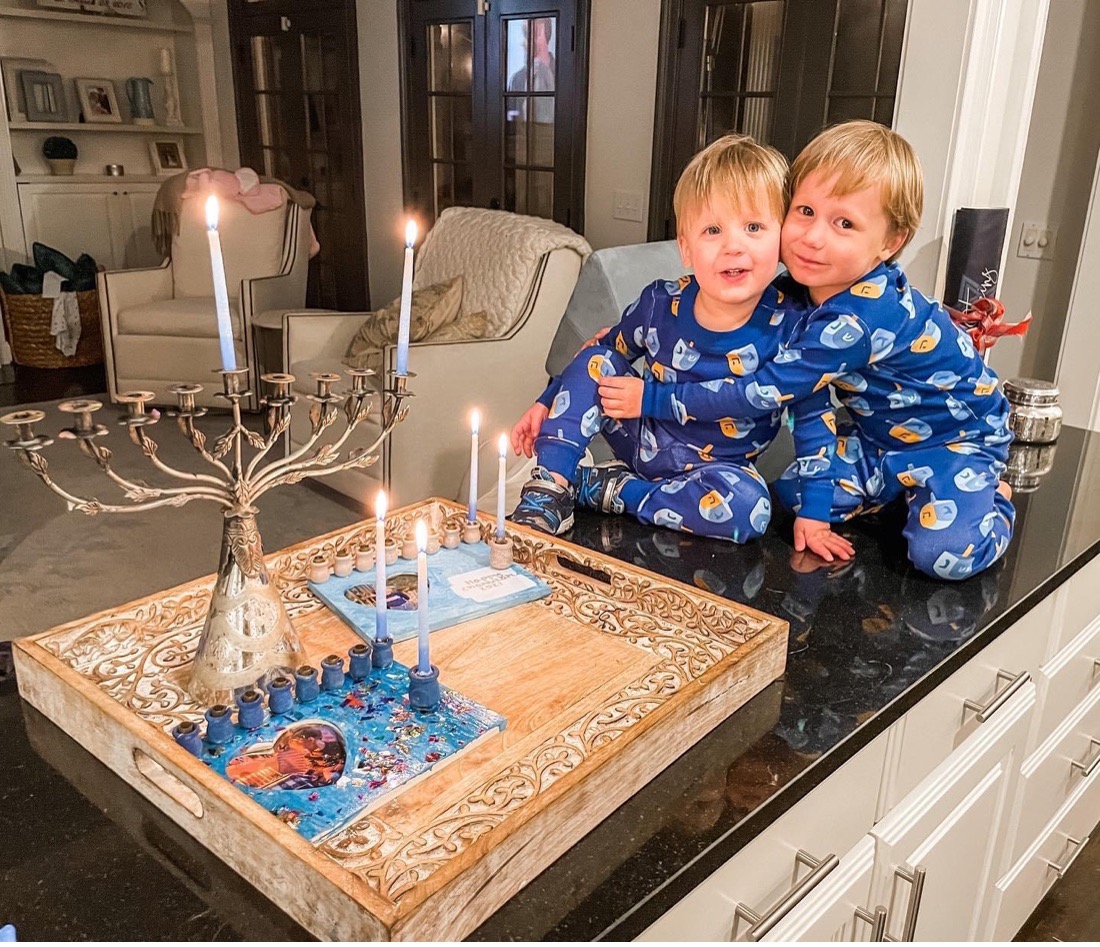
How Somerville and her family celebrate:
The mom of two explains her holiday traditions, “On the first night of Hanukkah, we get together with our entire family, including cousins, aunts, uncles, and kids. Sometimes friends also join and we light the menorah together. Then, we say blessings, and eat customary foods fried in oil—which is everybody's favorite. We make potato pancakes called latkes, and eat donuts or 'sufganiyot' amongst other sweet, fried foods.”
Gift giving during Hannukah
Somerville explains, “We open gifts with family, and that's just for fun. It can be anything. Generally, it's not part of the Hanukkah story. Many families will do like eight small gifts so that you get something small every night, and some families do a gift on the first night. Everybody does that a little bit differently.”
A recipe for Somerville’s latkes
Here is the Somerville family recipe for this delicious holiday treat, “There are three ingredients in this dish: potato, onion, and a binder. You cut up a lot of potatoes like you would if you were making hash browns and then put them together with onion and eggs and fry them in a pan.”
About the toppings, Somerville says, “Most people put toppings on their latkes. For instance, applesauce or sour cream are two of my favorites. Some people even do like a berry jam on their latkes.”
Somerville’s favorite Hannukah memories:
My best memories of Hanukkah as a child would be walking into my grandparent's house, and there would be this wave of smoke and fog from frying latkes. My grandfather was always in the kitchen, cooking those latkes for the whole family. There are also memories of how special it was to have our family together over the holidays and sing together. There are a lot of songs about Hanukkah, and we do a lot of just singing and blessings. We sing to thank God for the miracle of Hannukah, for all we have and are grateful.”
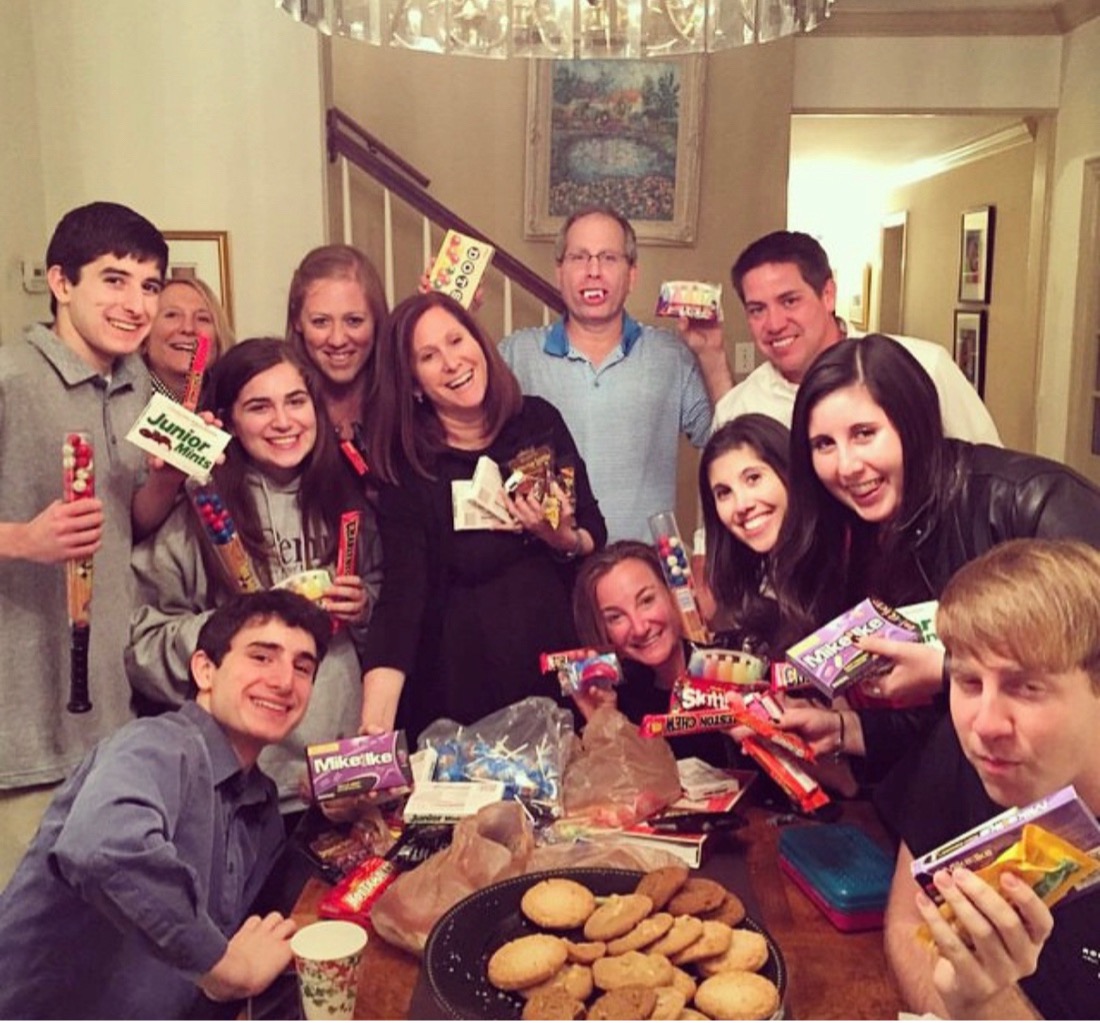
-
Why Holocaust Remembrance Day is More Important Than Ever: A Message from the Heersink School of Medicine
 International Holocaust Remembrance Day is an annual commemoration held on January 27th to remember the victims of the Holocaust and to raise awareness of the dangers of hatred, prejudice, and bigotry. It is an important day for the entire world and certainly for the Heersink School of Medicine Office for Diversity and Inclusion.
International Holocaust Remembrance Day is an annual commemoration held on January 27th to remember the victims of the Holocaust and to raise awareness of the dangers of hatred, prejudice, and bigotry. It is an important day for the entire world and certainly for the Heersink School of Medicine Office for Diversity and Inclusion. -
Women Faculty Celebrated at November Promotion Event
Selwyn M. Vickers, M.D., FACS, dean of the School of Medicine, welcomed faculty members and their families to the Women in Medicine and Science Promotion Reception on Nov. 15 in the Partridge Atrium of the Comprehensive Cancer Center. The faculty and their families gathered to celebrate the promotion of eight women faculty members to the rank of professor and 19 women faculty members to the rank of associate professor. Vickers lauded the accomplishments of the women present and recognized the importance of their work.
Mona Fouad, M.D., MPH, senior associate dean for Diversity and Inclusion, also addressed the attendees, their colleagues and their families. “In achieving your personal professional goals, you are helping create an organizational climate that fosters the growth of other women,” said Fouad. She referenced Nobel Laureate Gertrude Belle
 Elion, who helped develop drugs to treat many major diseases, including cancer, malaria and AIDS. Fouad quoted Elion saying, “Don’t be afraid of hard work. Nothing worthwhile comes easily. Don’t let others discourage you to tell you that you can’t do it. In my day I was told women don’t go into chemistry. I saw no reason why we couldn’t.”
Elion, who helped develop drugs to treat many major diseases, including cancer, malaria and AIDS. Fouad quoted Elion saying, “Don’t be afraid of hard work. Nothing worthwhile comes easily. Don’t let others discourage you to tell you that you can’t do it. In my day I was told women don’t go into chemistry. I saw no reason why we couldn’t.” -
Women in Medicine & Science Promotion Reception Recap (2021)
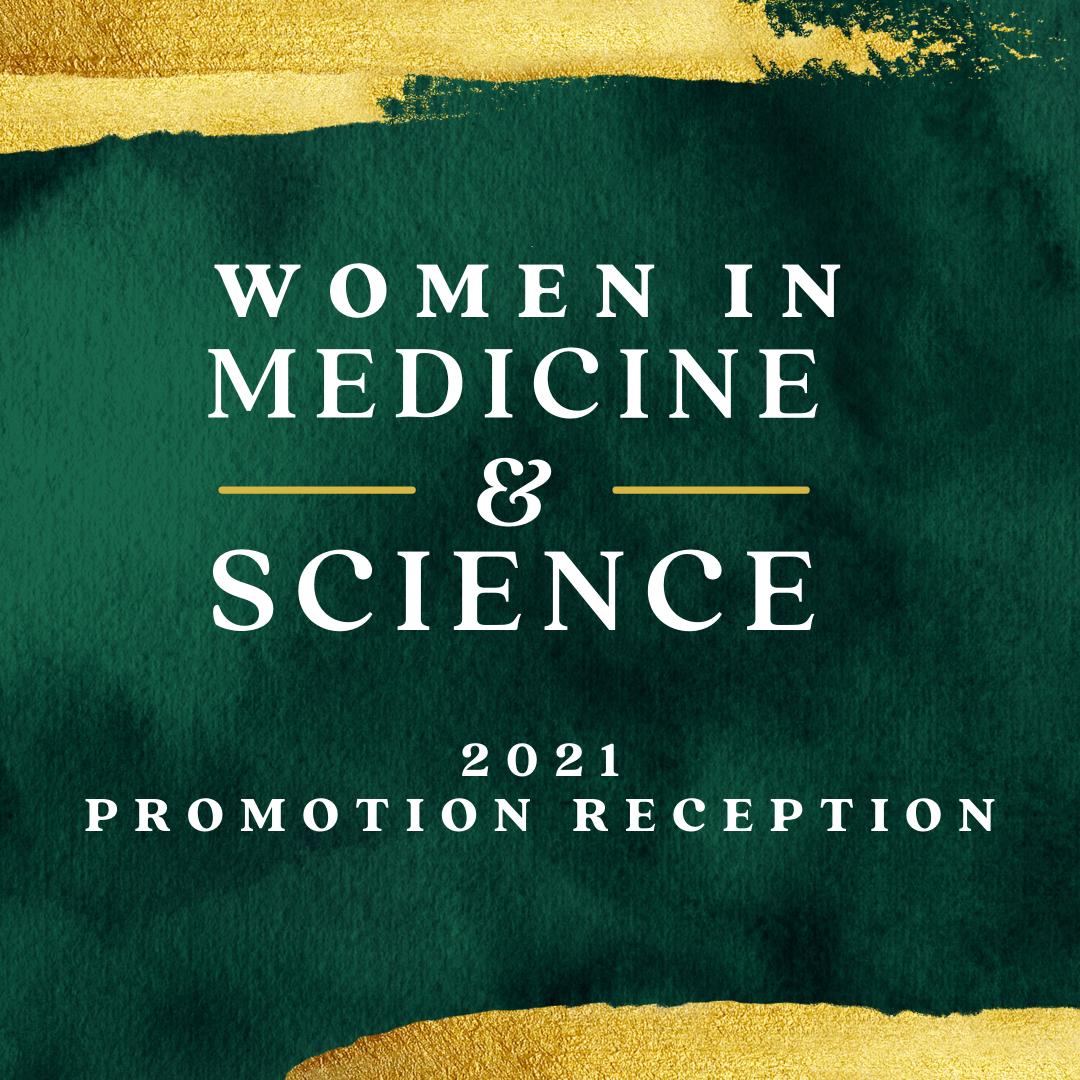 In November, the Heersink School of Medicine Office for Diversity & Inclusion hosted its annual reception, honoring the women promoted in medicine and science during 2021.
In November, the Heersink School of Medicine Office for Diversity & Inclusion hosted its annual reception, honoring the women promoted in medicine and science during 2021.This event returned in-person—at the Wallace Tumor Institute Lobby of the O’Neal Comprehensive Cancer Center at UAB—to spotlight 10 women promoted to full-time professor, 26 promoted to associate professor, and 2 who had been awarded tenure.
-
Women in Medicine & Science Shine at Annual Promotion Reception
 The Heersink School of Medicine Office for Diversity and Inclusion hosted its annual Women in Medicine & Science Promotion Reception—celebrating women promoted at the end of 2022—at the Wallace Tumor Institute on Thursday, January 12, 2023.
The Heersink School of Medicine Office for Diversity and Inclusion hosted its annual Women in Medicine & Science Promotion Reception—celebrating women promoted at the end of 2022—at the Wallace Tumor Institute on Thursday, January 12, 2023. -
Women in Surgery Holds Annual Program, April 10-11
On April 10-11, the UAB Department of Surgery will host its second annual Women in Surgery Program, which aims to help promote community and camaraderie among female surgeons and encourage female undergraduate and medical students to
 choose surgical specialties.
choose surgical specialties.“This year the program will focus on networking, mentorship and leadership,” said Dr. Catherine Parker, M.D., assistant professor in the UAB Division of Surgical Oncology and co-organizer of the two-day event. “Women are underrepresented in surgical faculty and leadership positions at U.S. medical schools. Through this program, we hope to highlight pathways to success for women in the surgical specialties and encourage undergraduate and medical students to pursue careers in surgery.”
-
Women's History Month 2021 - A Letter From Dr. Fouad
Hello Everyone,
I want to wish you all a happy Women’s History month! As you probably know, before March was officially designated Women’s History Month in 1987, we celebrated March 8th as International Women’s Day (IWD). But did you know the first IWD can be traced back to 1911?
Our mothers and grandmothers have actually advocated for gender equity in our country for hundreds of years, and the month of March is officially a time to reflect on their accomplishments and to advocate for equity around the world.
-
Year of the tiger: Lunar New Year 2022
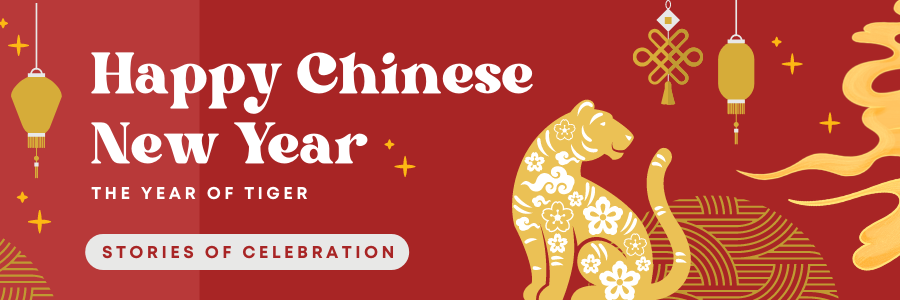
This year, the Chinese or Lunar New Year begins on Feb. 1 and we will be celebrating the Year of the Water Tiger.
-
Your Racial Justice Questions, Answered.
 After the forum for racial justice, hosted by the School of Medicine in June, we compiled a listed of questions that team members wanted answered. To start, we have selected and answered two of those questions.
After the forum for racial justice, hosted by the School of Medicine in June, we compiled a listed of questions that team members wanted answered. To start, we have selected and answered two of those questions.
Page 6 of 6